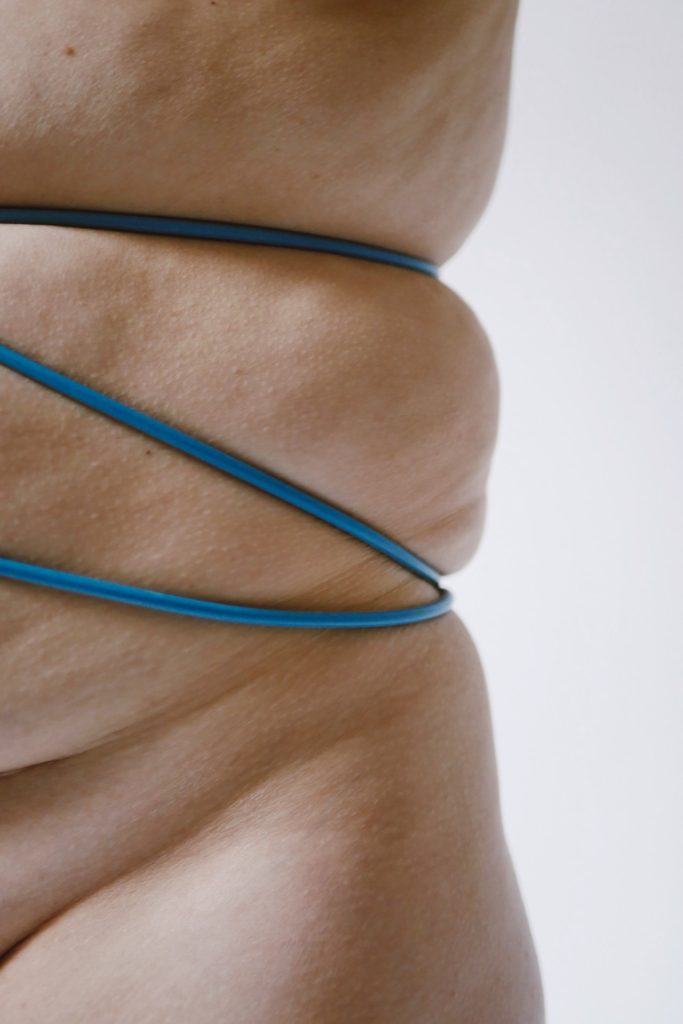Losing Weight After 60: Healthy Diet and Exercise Tips for Seniors. Let’s start with the positive news: reducing weight after 60 is doable. Maintaining a healthy weight as a senior might also help you live an active and engaged life. Unfortunately, many older people must change their previous weight-loss practices to lose weight safely. What works for weight loss in younger individuals may not necessarily work for older individuals.
It’s easy to declare that a specific gimmick or diet will result in weight loss. However, a credible software will be able to provide scientific, peer-reviewed proof, as well as information on topics such as:
The procedure for many seniors wanting to Losing Weight After 60 begins with calculating their ideal weight. However, because body composition changes with age, your goal weight and health priorities may alter as you get older; that’s just one reason you think you need to reduce weight; you should work closely with your healthcare team.
This post will show you how to maintain your health while decreasing weight healthily. Continue reading to learn more about developing a healthy senior weight loss plan.
Is it necessary for me to lose weight? Why Seniors Should Be Wary of Weight Charts
If you’re a senior with excess weight and you are losing Weight After 60 you might believe that losing it is the best thing for your health. After all, being overweight or obese puts you at risk for a variety of health issues, including:
- Diabetes type 2
- Cardiovascular problems
- Certain types of cancer
- Hypertension
- Osteoarthritis
However, calculating the appropriate body weight for the elderly is more complex than examining weight tables. If you’re unsure how much you should weigh, the first step should speak with your doctor. That’s because weight-loss objectives for seniors must include a variety of aspects, including general health.
As we become older, several of the established methods for estimating an optimal weight shift. Body mass index, or BMI, is a notion you may already be familiar with. (An online calculator can help you calculate your BMI.) The BMI is a measurement of your weight-to-height ratio.
The following are the standard BMI ranges:
- BMI less than 18.5 is considered underweight.
- BMI of 18.5 to 24.9 is considered normal.
- BMI between 25 and 29.9 is deemed to be overweight.
- Obese: BMI greater than 30
Many people, however, believe that BMI oversimplifies weight issues. One explanation for this is that BMI ignores that muscle is denser than fat. As a result, a person with a lot of muscle may have a substantially higher BMI than someone with less muscle who wears the same size clothing. (In fact, since they have so much muscular mass, many professional athletes fall into the “obesity” group on the BMI chart.)

But what does this imply for the elderly? First, here’s an important fact: Our body composition changes as we age.
(The quantity of muscle and fat on your body is called body composition.) According to a Tufts University article, many seniors develop sarcopenia, or muscle loss, as they age. And losing muscle mass may have a more significant impact on health than gaining weight. So losing weight due to muscle loss isn’t always a positive thing.
According to the Tufts University article, being underweight as a senior entails higher risk than being overweight. It may sound contradictory, but overweight adults over 65 had a lower death rate than undernourished or normal-weight people. (This is known as the “obesity paradox” by some doctors.)
As a result, our optimal BMI tends to rise as we become older. As a result, some medical professionals believe that a separate “BMI for older persons” chart with somewhat higher numbers should be created. This type of senior weight chart would employ a “normal” BMI range of 25 to 27.
Your health concerns will also influence your weight-loss objectives. For example, the optimal weight for men over 60 with diabetes may be lower than for other men in their age range. Likewise, a weight chart for women over 50 who have not yet experienced menopause may differ from one for women over 60 because menopause’s hormonal fluctuations can induce body composition alterations.
Advantageous to focus on fat accumulation and body composition
Instead of just focusing on weight loss, it may be more advantageous to focus on fat accumulation and body composition (i.e., muscle-to-fat ratio).
Why is it necessary to know where excess fat is stored? People prefer to retain fat above or below their hips (primarily in their tummies). Fat deposited above the hips puts you at a higher risk for:
- Heart problems
- Stroke
- Diabetes
- Insulin sensitivity
- Alzheimer’s disease is a type of dementia.
Due to the heightened health risks associated with belly fat, waist circumference is frequently used to measure overall health. However, instead of looking at an old weight chart to see if you need to lose weight, you may calculate your waist-to-hip ratio and talk to your doctor about the results if you want to Losing Weight After 60.
In other words, if you’re focused on achieving an “ideal” weight, you might be pursuing the wrong aim. Instead of lowering your BMI, research says that you should focus on eating for your health and preserving muscle tone and bone strength. Again, working with your healthcare practitioner to develop tailored goals and programs that work for you is critical.

Why Is It Difficult to Lose Weight After 60? How Your Body Alters As You Grow Older
If you and your healthcare professional determine that losing weight will benefit your general health, you may need to reconsider your diet plans. Many seniors find that losing weight becomes increasingly difficult as they age. Slower weight loss is a natural aspect of the ageing process, and it can be disheartening. So don’t blame yourself if you’re having trouble losing weight. For example, if a 60-year-old woman cannot lose weight, she may blame herself for her lack of dedication. But, on the other hand, her body could just be responding in an age-appropriate manner.
But that doesn’t rule out the possibility of losing weight after 60. Many people lose weight successfully at any age. By modifying your weight-loss tactics to your changing body, you can lose weight as you get older even losing weight after 60.
Consider your basal metabolic rate as the first step in understanding why weight loss standards differ for seniors. That’s how many calories you burn merely to stay alive (i.e., the energy you expend breathing and digesting food). This rate is distinct from the calories used during exercise or daily activities.
Your body composition influences your basal metabolic rate. Because muscle burns more calories than fat, this is true; due to its more significant weight. As a result, people with a lot of muscle mass should have a higher basal metabolic rate than those who don’t.
Muscle mass starts to lessen in our thirties unless we work to retain it. Although we may not realize it when it starts, this process has a significant impact over time. A study published in Clinical Interventions in Aging claims: that between the ages of 50 and 70, we lose roughly 30% of our muscle strength. After 70, the rate of muscle loss accelerates even more. As a result, losing weight after 70 will be considerably more complicated than now.
Eating the same amount of calories and exercising the same amount as when you were younger, you may gain weight as your basal metabolic rate lowers.
As a result, the number of calories you should consume daily decreases by roughly 100 calories each decade. That isn’t a significant sum (about the equivalent of one apple). It does, however, add up. To lose weight, a 60-year-old woman should consume fewer calories per day than a 40-year-old woman, all other things being equal.
Although it may appear unjust in today’s more sedentary society, this procedure makes evolutionary sense. Our bodies had to learn to survive on less food as we grew older, and our hunting and gathering abilities diminished. As a result, even if we don’t need or desire it, our ageing bodies try to hold on to any excess weight.
Furthermore, many seniors’ weight loss is slowed by additional variables that affect their metabolisms, such as:
- Medications: Seniors are more prone to use medicines that can cause weight gain and make losing weight more difficult. However, the consequences are frequently unpredictable. . Some people find that taking Wellbutrin, an antidepressant, helps them lose weight, while others find it causes them to gain weight. Talk to your doctor if you’re concerned about a medication’s weight-related side effects.
- Changes in gastrointestinal function: Some older adults avoid fresh fruits and vegetables to avoid unsettled stomachs. Your doctor can assist you if you’re having digestive problems interfering with a balanced diet.
- Some medical conditions include: seniors’ weight loss can be slowed by certain common health conditions. When your thyroid does not create enough thyroid hormone, your metabolism may stall. Working with your doctor to normalize thyroid hormone levels can help you lose weight if you have an underactive thyroid.
What Can I Do to Boost My Metabolism? Getting Ahead of the Aging Process

The good news is that by adopting a few simple lifestyle modifications, you can speed up your metabolism beyond 50. These practices will also benefit your health in other ways. Check out these suggestions for “tricking” your body into a faster metabolism:
To burn more calories is to maintain muscle tone. In addition, starting or continuing a strength-training program can assist older adults in boosting their basal metabolic rate.
Strength exercise is also beneficial for belly fat loss.
According to research published in the Journal of Obesity, weight loss in the abdomen region negatively influences senior health. And this is where most of the fat loss from strength training comes from, even if the activities aren’t targeting abs). Healthy Diet and Exercise Tips for Seniors
Strength training also does not have to be complicated or time-consuming. If you’re not already lifting weights (or performing other strength-building workouts like yoga), talk to your doctor about developing a personalized plan. A good resource is the National Institute on Aging for seniors, which shows some simple activities that can be a perfect place to start.

Remember, you can enhance your muscle tone at any age. Healthy Diet and Exercise Tips for Seniors
Strength-training workouts can help you gain muscle mass beyond 60. You can keep your muscles strong far into your 90s and is a great tip with these factors in mind: Healthy Diet and Exercise Tips for Seniors
1. Incorporate additional activity into your daily routine.
You may reap the benefits of physical activity without going to the gym. Unfortunately, we become more sedentary during the day as we grow older. However, according to research published in the American Journal of Physiology-Endocrinology and Metabolism, elderly people walk less when performing everyday duties.
That’s a shame because even moderate exercise might benefit your metabolism and cardiovascular health.
However, we have fewer options for such movement in today’s mechanized society. So take advantage of any opportunity to get some extra light activity. Gardening, hand-washing dishes, and putting away all of the laundry are examples of activities that keep your body moving.
Walking is generally recommended as the best weight-loss exercise for seniors. However, you don’t have to walk 10,000 steps every day to reap the benefits. Even tiny increases in your walking distance can benefit.
2. Consume a lot of protein.Healthy Diet and Exercise Tips for Seniors
Protein can aid muscular growth. However, digestion takes extra energy as well. You can prevent muscle loss by boosting your metabolism after 60 by eating lean protein with every meal.
According to The Journals of Gerontology: Series A, seniors who eat enough protein are less likely to lose their capacity to do routine tasks like dressing and walking upstairs.
It’s generally better to get your protein from whole foods to avoid missing out on other essential nutrients like fibre. However, it is challenging to get enough protein from whole foods alone. So fill up the gaps with a high-quality protein powder.
When you’re busy or don’t feel like cooking, store-bought meal replacement drinks are convenient, but they’re often rich in sugar and unnecessary ingredients. Higher-protein meal replacement shakes could be an excellent option if you need more calories and overall nutrition. On the other hand, a high-quality protein powder is undoubtedly a better choice if you want to supplement protein without adding anything else.
3. Consume sufficient calories. Healthy Diet and Exercise Tips for Seniors
This may appear to be unusual. But, for instance, many fad diets demand that dieters substantially reduce their calorie intake. And you’ve probably heard that cutting calories is the key to reducing weight.
However, a low-calorie diet can backfire, especially for the elderly and some people. Our metabolism can shift into “starvation mode” to preserve energy when our bodies detect that we aren’t obtaining enough energy to meet our basic demands. But, again, evolution is most likely to blame. Before we had supermarkets and fast restaurants, hunger was sometimes a warning that food was in low supply.
Furthermore, if you don’t consume enough calories, you may lose weight too quickly, resulting in muscle loss. Muscle is also necessary for a healthy metabolism.
Unfortunately, many older persons struggle to consume adequate food. Reduced appetite in seniors can be caused by various circumstances, including changes in their sense of smell or taste.
Consult your doctor if you have trouble eating regular, balanced meals due to a lack of appetite. At first glance, a decreased appetite may appear to benefit weight loss. However, for the elderly, it may indicate health problems that should be investigated.
4. Get plenty of rest.

Sleep deprivation is common among seniors. However, another behaviour that can affect your metabolism is not getting enough sleep. According to a study published in the Journal of Obesity, sleep deprivation is associated with an increased risk of obesity in older adults.
5. Reduce your level of anxiety.
Your body can perceive your stressed-out mood as a hint that you need to preserve energy while under persistent stress. Stress hormones like cortisol, which promote the “flight or fight” response, can also cause glucose production because our systems believe we need the energy. The outcomes can affect your metabolism as well as induce sugar cravings. While additional research is needed, several studies suggest that relaxing exercises like meditation can aid metabolism.
What is the Best Senior Diet? Weight Loss Tips That Are Safe
Despite what tabloid headlines and late-night infomercials claim, there is no such thing as a universal, perfect weight-loss diet. As a result, you won’t find a failsafe, magical formula here—or anywhere else. Instead, the most effective diet for weight loss is tailored to your specific health concerns and lifestyle.
When deciding on the optimal diet for you, numerous factors to consider. The healthiest diet for older women, for example, is often considerably different from the optimum diet for older men. And the instructions for losing weight at 65 years old will differ from those for someone at 75 years old.
On the other hand, individual considerations can further determine your success. For example, it would help if you thought about your overall health, personality, unique goals, gender, and age.
Take into account the National Weight Control Registry (NWCR). It includes self-reported data from over 10,000 people who dropped at least 30 pounds and kept it off for one year. The NWCR suggests dieters employ a combination of informal dietary adjustments and official weight-loss programs to achieve their goals.
Researchers who looked at the data discovered that no one diet or eating pattern was the most successful.
However, there are some recurring themes throughout the NWCR’s success tales. For instance, 94% of NWCR participants improved their physical activity.
(Walking was one of the most popular types of exercise.) Successful dieters in the registry were also more likely to have motivational motivations other than their appearances, such as being concerned about a family history of diabetes or wanting to be able to play with their children or grandchildren.
So, while the diet industry makes a lot of huge claims about quick and straightforward weight loss, a balanced diet with gradual, realistic modifications will be more sustainable in the long run. Be wary of any “diet” that urges you to exclude entire food groups or substantially reduce your calorie intake.
Although weight loss for seniors is quite individual, most older adults and older adults can benefit from some easy strategies:
1. Consult your doctor for a caloric-needs calculation that is right for you.
The number of calories you should consume each day is determined by several factors, including your age, size, metabolic health, and amount of activity. For example, according to government guidelines, a moderately active 60-year-old woman should consume approximately 1,800 calories each day. However, if she exercises more, her calorie requirements may increase. Conversely, they may also decrease if she leads a sedentary lifestyle.
You can determine how many calories you need and how many calories you should eliminate to lose weight with your doctor’s advice.
2. Make natural food choices.
As you become older, one issue that arises is that your body needs the same nutrients. It does, however, require fewer calories. That means avoiding nutrient-deficient diets and focusing on natural, nutrient-dense foods.
Healthy eating for the elderly can be tricky since we tend to think of natural foods as more expensive, and many older people have limited resources.

making natural food choices
However, excellent dining for seniors does not have to be expensive. Research published in BMJ: the gap between the healthiest and the most unhealthy diets is roughly $1.50 per day. Although this amounts to around $550 per year, the medical expenditures of a poor diet might be substantially higher. Eating the proper foods need to be a priority when you are Losing Weight After 60.
3. Consume a variety of fruits and vegetables.
Consuming a variety of fruits and vegetables guarantees that you obtain enough vitamins and antioxidants without consuming unnecessary calories. Furthermore, because produce often has a high amount of fibre, you will feel fuller sooner than if you ate too processed food. Fibre is especially beneficial for the elderly to aid digestion and prevent constipation.
Aim for seven servings of fruit and vegetables every day, with various colours included. Filling one half of your plate with veggies or fruit is a popular approach for increasing fruit and vegetable consumption.
4. Consume breakfast.
It’s a crucial supper. Only 4% of those who participated in the NWCR claimed they didn’t eat breakfast. Protein-rich breakfasts are ideal for seniors since they keep you feeling fuller for longer. Yes being full for long helps when you are set on Losing Weight After 60.
5. Keep your portion sizes in check.
You may have observed that the portions we are offered in restaurants are getting larger. Unfortunately, this can lead to erroneous perceptions of how much food we should consume at each meal or snack. When looking at a food’s nutritional information, pay attention to what constitutes a “serving.” Very important to pay attention to your portions when you are trying Losing Weight After 60.
According to USDA rules, half a cup of pasta, one spoonful of peanut butter, or 12 almonds are all considered one serving. However, you’ve probably discovered that eating far more than those amounts is simple.
It’s easy to overdo it when consuming food straight from the container (for example, potato chips from a bag). So go ahead and count out one serving. (A serving size can be seen on the nutritional label.) Then transfer that quantity to a bowl. Finally, remove the bag from sight and eat directly from the dish.
6. Healthy fats should not be avoided.
Yes, fat can be part of a weight-loss strategy. All you have to do now is pick the right foods. Unfortunately, we often associate “fat” negatively, although it is a vital nutrient that provides energy and aids in various biological functions.
Eating fat can also make you feel full. (Have you ever observed that eating low-fat yoghurt makes you feel less satisfied than yoghurt with more fat?) this can be essential when Losing Weight After 60.
Polyunsaturated and monounsaturated fats are “healthy” fats. In contrast to saturated fats, which can harm your heart, these fats can help lower cholesterol levels and protect you from heart disease.
Monounsaturated and polyunsaturated fats can be found in the following foods:
- Extra virgin olive oil, for example, is made from plants.
- Avocados and nuts
- Chia seeds.
- flaxseed powder
- The yolks of eggs
- Salmon with other types of fish
7. Water is essential.
You may have realized that your thirst isn’t as great. However, this does not imply that you require fewer liquids. Furthermore, some drugs can dehydrate you. Therefore, you should monitor your water consumption. Throughout the day, carry a reusable water bottle. Also, before each meal, drink some water. (Drinking something before a meal can also help you avoid overeating.)

8. Be aware of your hunger signals.
It could be tricky Losing Weight After 60. Pay attention to your hunger signals, and eat. Then, stop when you’ve had enough. Isn’t it straightforward? However, this is sometimes one of the most challenging aspects of a weight-loss programme. Slowing down your eating can assist you in recognizing when you’ve eaten enough. This is because your brain takes time to identify a feeling of fullness. Its very important to give your body what it needs when Losing Weight After 60.
9. Make a list.
A modest slice of cake, a scoop of ice cream, or a few cookies appear safe. Unfortunately, many people eat more than they think, especially when it comes to mindless snacking. Writing down everything you eat will help you become more aware of what you’re eating. Being more conscious can also assist you in eating less.
10. Consume sufficient vitamins and minerals.
You may unintentionally lower your critical vitamin and mineral intake when restricting your food intake. However, these essential nutrients are necessary for your wellness. They can even assist you in achieving your weight-loss objectives. Magnesium, for example, can aid weight loss by regulating blood sugar levels.
How Can I Stay on Track With My Weight-Loss Goals? Successful Strategies
It’s simple to read a list of suggestions and vow to eat better if you are want to think about Losing Weight After 60. But putting those new resolutions into action is the tricky part. And according to a HuffPost Highline piece, many diet regimes that begin with good intentions wind up failing—up to 98 per cent of them.
So, what are your options for success? Developing techniques that work for you is a large part of the solution. After all, each individual is unique.
Here are some broad suggestions to assist you in sticking to your weight-loss goals:
Work with your medical professionals.
Collaboration with healthcare professionals can help you succeed. According to the HuffPost Highline post, the amount of professional support dieters receive has a more significant impact on their performance than their diet.
Any dietary modifications should be discussed with a healthcare physician, especially for seniors. After all, you may face a few more difficulties than you did when you were in your forties.
A nutritionist can assist with weight loss in addition to working with your primary care physician and any appropriate specialists. Just make sure to look at a nutritionist’s credentials and education. Look for someone who has worked with the elderly’s nutritional requirements before and knows what it takes, if you are intent on Losing Weight After 60.
A dentist can be a valuable member of a weight-loss team. For example, some seniors struggle to eat fresh fruits and vegetables because they are difficult to chew due to dental issues or ill-fitting dentures.
Are you concerned about the cost of expert weight loss assistance? Did you know that Medicare covers a weight-loss program that includes obesity screening and counselling? In addition, Medicare Part B. covers obesity behavioural therapy. However, these services are only available to people with a BMI of 30 or more. So check yours if you are wanting Losing Weight After 60.
Some Medicare Advantage plans may also cover the SilverSneakers program, including access to exercise facilities and a mobile app with fitness videos, suggested training regimens, and accountability tools.
Solicit help from friends and relatives.
Reducing weight will be easy if your friends and family are on board with your intentions. However, if you have unhealthy persuasions, such as friends, Explain how lowering its importance will improve your health and quality of life.
Also, if you enjoy exercising with others, see if someone is willing to be your accountability buddy. If you have company, you’ll be more motivated to stick to your workout regimen (and have someone wait for you at the gym or on the track).
Companionship can also help with food preparation. Seniors who think about Losing Weight After 60, especially those who live alone, may lack the initiative to prepare balanced, nutritious dinners every night. If you’re having trouble getting inspired to cook healthy meals, chat to a friend or neighbour about pooling your resources. You could, for example, arrange a timetable in which you alternate making and sharing meals. You might also look into what meals are provided at a nearby senior or community center.
Expect to be disappointed.
You may face difficulties and decide to “cheat.” That’s OK. Remember that lifestyle changes do not have to be all or nothing. Simply return to your healthy lifestyle as soon as possible. Consider whether anything caused your setback. Solutions are as simple as the fact that you’re human. Be patient with yourself.
Also, focus on the benefits you’re experiencing rather than the weight you’re losing. Changing your eating habits and beginning to exercise can improve your quality of life in various ways. Your efforts are successful if you are sleeping better, experiencing more good emotions, and feeling more confident, even if the pounds are slowly coming off.
Break down your objectives.
Setting defined, attainable goals will aid your success. If you make adjustments gradually, you could have a greater chance. For example, instead of starting with a rigid “clean” eating plan, you could begin by adding a salad to your supper or substituting fresh fruit for dessert.
Is There a Simpler Approach? Weight-Loss Scams and False Promises to Avoid
Cotton balls, baby food, and Twinkies all have something in common. They’ve all been the focus of bizarre, medically questionable “diets.”
The diet business is notorious for spreading disinformation and making false promises. As a result, diet-related complaints are the most common complaint filed with the Federal Trade Commission. It’s also no wonder that so many con artists are eager to take advantage of our weight-related vulnerability: According to a TIME story, the weight-loss market was worth $66 billion in 2017. This figure demonstrates how much people are willing to put an effort into Losing Weight After 60.
Looking for an easy way to lose a lot of weight is perfectly understandable. However, it’s also essential to make intelligent decisions so that you don’t become a victim of fraud. Check out these warning signs of possible weight-loss scams:
Unrealistic outcome claims:
If it sounds too fantastic to be true, it probably is. Be cautious of diet plans that promise rapid weight loss with no effort. (Keep in mind that the optimum weight loss for seniors is moderate and sustainable, even if speedy weight loss is achievable on a particular plan.)
Uncertain science: It’s easy to claim that a specific gimmick or diet would result in weight loss. A reputable program will also be able to produce scientific, peer-reviewed proof, such as the following:
- How many people complete the course?
- On average, how much weight do they lose?
- What are the potential side effects?
Untrustworthy sources: Double-check where it came from if you hear about a new study or product that sounds good. Generally, be sure the material comes from a reliable, unbiased source that isn’t trying to promote or sell anything.
With all of this in mind, there are several excellent fitness and weight loss books for people in their forties and fifties that can provide motivation and assistance on their journey. It’s a good idea to read some reviews of a book or program before committing to it. Other people’s experiences and opinions can help you determine the legitimacy of a book or the efficiency of a fitness program. Be careful when you are intent on Losing Weight After 60.
You are capable of achieving your objective which is Losing Weight After 60.
Yes, Losing Weight After 60 is difficult. However, you may enhance your health and quality of life by implementing long-term, realistic lifestyle adjustments. To guarantee a safe approach, cooperate with your healthcare providers.


I truly appreciate this article post. Really thank you! Really Cool. Rocky Rindal
You made some good points there. I looked on the internet for the subject matter and found most people will approve with your blog. Dana Walberg
Hello!
I am Jewell, a writer for the website helpweightoff.com; If you are interested in writing for us, please let me know. (for free, of course), but one of your links (from your blog) will be featured on one of ours.
Please tell me what you think.
Regards,
Jewell
Wonderful web site you have in this article, i do agree on some points nevertheless, but not all. Rich Gabino
I view something genuinely interesting about your blog so I saved to bookmarks . Arthur Manko
Very beneficial information that you have remarked, warm regards for setting up. Christopher Chesler
Hi mates, nice post and nice urging commented at this place, I am genuinely enjoying by these. Benjamin Forinash
I really like your writing style, fantastic information, thankyou for putting up : D. Garrett Drumgoole